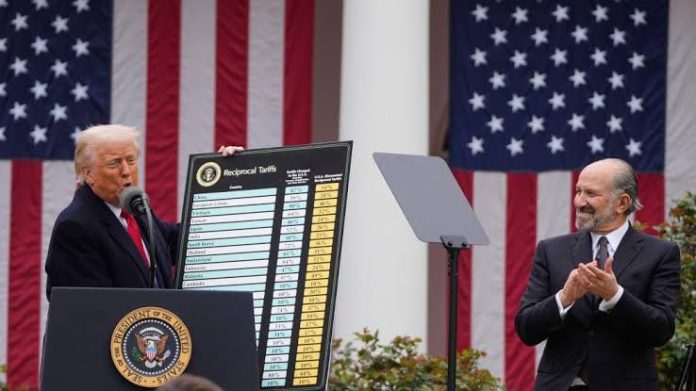Facebook Twitter (X) Instagram Somali Magazine - People's Magazine
A U.S. federal appeals court has temporarily reinstated former President Donald Trump’s controversial tariffs, reversing a recent lower court ruling that had declared them unlawful. This sudden development revives key portions of Trump’s economic agenda and marks a significant moment in the ongoing legal and political fight over executive power in trade policy.
The U.S. Court of Appeals for the Federal Circuit granted an emergency motion that halts the earlier decision made by the U.S. Court of International Trade. That lower court had ruled that the Trump administration overstepped its legal authority by using the International Emergency Economic Powers Act (IEEPA) to justify a sweeping range of tariffs. According to the original ruling, the IEEPA was never intended to be used as a blanket mechanism to impose trade penalties and lacked specific language that permits the president to enforce tariffs without congressional approval.
At the heart of the dispute are tariffs introduced under Trump’s “Liberation Day” policy, a sweeping trade initiative that reimposed duties on key imports from countries including China, Canada, and Mexico. The administration had framed the tariffs as a necessary national security measure in response to international threats such as fentanyl trafficking and other illicit activities.
With the emergency ruling in place, the tariffs remain legally enforceable while the appeals process plays out. The court has set a tight timeline for further proceedings. Plaintiffs opposing the tariffs must submit responses by June 5, and the government is expected to reply by June 9.
The decision to reinstate the tariffs has drawn a mixed reaction across political and economic circles. Supporters within Trump’s orbit praised the court’s move as a victory for national sovereignty and a reaffirmation of executive authority. Trump advisers signaled confidence that even if the current legal challenge succeeds, similar tariffs could be implemented through alternative legal strategies. There is growing speculation that the administration could invoke other emergency powers or propose legislative fixes to protect the tariff framework.
Critics, however, warn that the ruling could set a dangerous precedent by giving the executive branch unchecked control over trade policy. Economists and legal experts argue that such authority properly belongs to Congress and that the use of emergency laws to impose economic penalties undermines democratic accountability. Many also point to the economic consequences of the tariffs, noting increased costs for consumers, supply chain disruptions, and trade tensions with key allies.
Small businesses and importers, in particular, have expressed frustration over the instability created by the shifting legal status of the tariffs. Many fear that continued uncertainty could damage long-term planning, investment, and competitiveness in the global market. Foreign governments affected by the tariffs have also raised concerns about the fairness and legality of U.S. trade practices, signaling potential retaliatory measures if the policies remain in force.
As the legal process continues, the broader implications of this case could influence future administrations and reshape the boundaries of presidential power in trade matters. For now, the tariffs remain active, pending a final decision by the appeals court.

